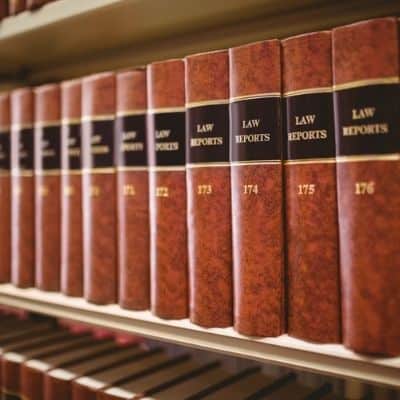
April 2024
Clean Break Order in April 2024
Separating from a partner is a stressful time, and stress about how you will get a financial settlement after divorce can add to this. A clean break can be a good idea in circumstances where both partners can successfully be financially independent of each other following the divorce. As the name implies, this means they are fully separate from each other financially.
Topics that you will find covered on this page
What is a clean break order?
This is where the court approves an agreement between you and your former spouse about finances. The agreement means that you and your ex-partner’s finances are completely separated forever and you can no longer make financial claims from the other person.
What is the difference between a clean break order and a consent order?
A clean break is a type of consent order used after divorce. They mean that your finances become completely separate and neither of you can claim against the other.
Who can get a clean break order?
It is open to couples who are past the Decree Nisi chapter of the divorce process. This type of financial settlement requires cooperation, so you are unlikely to be successful in obtaining a clean break if you and your former partner do not have a good relationship with each other.
Why should I get a clean break?
If you don’t have one, your former partner could claim against you at some point. It is a good way to end the ordeal of divorce and get finality on what assets are yours.
One example illustrating the importance of these orders is Nigel Page. He won £56 million in the lottery 10 years after his divorce. He did not get this order, and therefore his former spouse was able to make claims at this later date, successfully gaining around £2 million.
While this same situation is unlikely to happen to you, it illustrates how you can avoid a financial claim and potentially avoid losing your house and assets at a later date.
What reasons are there for a clean break?
A clean break consent order can be of benefit because:
- You prevent future claims
- You can both move on and so it may be easier to deal with the end of your relationship
- It may minimise conflict when separating assets, including your house
- It can prevent the expense of defending a future claim
When can I get a clean break?
You can apply for this when all the financial attachments you made during your marriage or civil partnership can be separated.
This includes all your remaining financial responsibilities, your property, maintenance payments and pension payments. For example, if you had a short marriage, both parties are employed at the time of divorce and there are no children, it is likely you will be able to separate without ongoing obligations.
What comes into a clean break agreement?
The financial agreement will cover both of your incomes and all of your assets and debts. You have to agree how the assets will be shared between you and how much you are each entitled to. If you have been married a long time, the economically weaker party is likely to be entitled to claim more.
Do I need my ex-partner to agree to a clean break agreement?
Both of the parties must agree to this type of settlement. Otherwise, the court may need to step in.
Do you have to request clean break orders?
Sometimes, the court can make this type of financial order even if the parties do not request one. They can also grant one as part of a consent order.
When can I not get one?
If you still have a financial obligation to your former partner, or they still have one to you, you may not be able to get this order. The court can defer the clean break if there is already a maintenance order.
The court does not have to give this order, and will only do so if appropriate.

When is spousal maintenance necessary?
One of the main examples where you may not be able to get this court order is because spousal maintenance is appropriate. This is important where one party earns much more than the other, so they make a payment to their former spouse.
This maintenance can last for the rest of both parties’ lives or for a set term, however it automatically ends if the receiving party dies or has another marriage.
What can affect my chances of getting a clean break?
It is more likely the court will make this order if your marriage was short and so it is easy for you to both be financially independent e.g. if you both have jobs and can split your capital fairly. You can still get a clean break if you have children, but it can create complications.
What happens if your ex-wife won’t sign the clean break order?
If the other party objects to a financial settlement, you may have to get the court involved, and a judge will decide for you.
You can ask the court to approve your version of the order, which is called an ancillary relief order. You should try to avoid a court orderas far as possible as you will have to pay a court fee, and you will probably have to pay for a solicitor and a barrister.
"A clean break is a type of consent order used after divorce. They mean that your finances become completely separate and neither of you can claim against the other."
Help & Advice Tweet
Can a clean break order be overturned?
The purpose of a clean break settlement is that both parties are barred from making any more financial claims.
However, in some circumstances the court can overturn the order, like if there has been fraud, or another intervening event. One example of this is where one party did not fulfil their obligations to disclose all of their property and assets.
How do I get a clean break?
To obtain a clean break agreement, couples need to both sign the consent order. To decide what is fair, you should have negotiated, but in many cases it is a good idea to get legal advice from a divorce solicitor or use mediation.

Who makes the order?
Judges are responsible for making the order in divorce proceedings, but a court hearing is not always needed. In England and Wales, the order becomes binding at the Decree Absolute stage of divorce proceedings.
How will the judge decide if I can have a clean break order?
Under family law, the judge will weigh up whether the terms are fair to both people. They will assess all the financial information they have been given, and consider the situation on a case by case basis.
Is a clean break order necessary?
They are not a necessary part of the divorce proceedings, and in some cases they are not appropriate.
You may not be able to achieve a clean break where there is not enough money available, or spousal maintenance has to be paid.
Does a clean break order affect child maintenance?
You can’t fully achieve a clean break where you have children eligible for child maintenance. However you can get a clean break divorce settlement for all other types of financial claim between you and your former spouse.
Do clean break orders mean child maintenance does not apply?
No, family law requires child maintenance payments until the children are age 21 or finish being in full time study. The divorce settlement agreement will include any agreement on a child maintenance schedule made by the parties. Otherwise, the Child Maintenance Service will need to get involved.

Would you like some help with a clean break order?
Slater and Gordon’s experienced divorce and family lawyers have the empathy and the expertise you need.
Slater and Gordon are regarded as the UK’s leading divorce and family law solicitors. They will be able to help you.
You can contact Slater & Gordon in one of 2 ways:
- Option 1 – Call directly on 0333 567 1610
- Option 2 – Leave your contact details and Slater and Gordon get in touch with you


You can call directly between Monday and Friday 9am – 5pm on
Tel: 0333 567 1610
You can arrange a call back from a divorce and family law specialist.
Article author

Katy Davies
I am a keen reader and writer and have been helping to write and produce the legal content for the site since the launch. I studied for a law degree at Manchester University and I use that theoretical experience, as well as my practical experience as a solicitor, to help produce legal content which I hope you find helpful.
Outside of work, I love the snow and am a keen snowboarder. Most winters you will see me trying to get away for long weekends to the slopes in Switzerland or France.
Email – [email protected]
More information related to family law

Clean break order
A clean break can be a good idea in circumstances where both partners can successfully be financially independent of each other following the divorce. As the name implies, this means they are fully separate financially.

cohabitation agreement
A cohabitation agreement for unmarried partners is where couples who live together but are unmarried set up an arrangement to protect their rights. This can cover all sorts of things, like what share of the property each party is entitled to, what happens if the relationship ends.

Consent order
Consent orders record what a divorcing couple have agreed to do about their finances. Having a formal agreement means that your former partner cannot make claims off you further down the line, long after your marriage has ended.

pension sharing on divorce
Pensions and divorce are both tricky, complicated subjects. The end of a relationship is not a convenient time for technical discussions of your pension, and divorce proceedings make everything more complicated. Our article covers the key topics.

mesher order
A mesher order is issued by the court, and deals with what is done with the family home when a couple gets divorced. It means you can put off selling the house for either a set amount of time or until a trigger event happens.

Will writing services
Most people in England and Wales do not have a will in place. Wills are very important documents, as they allow you to set out how you want your property and assets to be distributed after you die. It is really important you update your WIll if you are going through a divorce.
Frequently Asked Questions
What is a clean break order?
This is where the court approves an agreement between you and your former spouse about finances. The agreement means that you and your ex-partner’s finances are completely separated forever and you can no longer make financial claims from the other person.
What is the difference between a clean break order and a consent order?
A clean break is a type of consent order used after divorce. They mean that your finances become completely separate and neither of you can claim against the other.
Who can get a clean break order?
It is open to couples who are past the Decree Nisi chapter of the divorce process. This type of financial settlement requires cooperation, so you are unlikely to be successful in obtaining a clean break if you and your former partner do not have a good relationship with each other.
What comes into a clean break agreement?
The financial agreement will cover both of your incomes and all of your assets and debts. You have to agree how the assets will be shared between you and how much you are each entitled to. If you have been married a long time, the economically weaker party is likely to be entitled to claim more.

